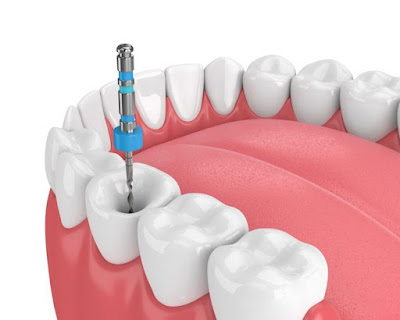Can You Have Root Canal Treatment When You’re Pregnant?


Root canal treatments are crucial procedures that can salvage a tooth affected by severe decay or infection. At Unique Dental Care, located in Rajkot, Gujarat, our team led by Dr. Mahesh Aghera and Dr. Poonam Aghera ensures top-notch dental services for patients seeking relief from dental issues. In this guide, we explore the various types of root canal treatments available, providing insights into their benefits and the best practices to ensure successful outcomes.
Root canal treatments, also known as endodontic therapies, involve the removal of infected or inflamed pulp from within a tooth, followed by cleaning, disinfection, and sealing of the root canal space. This procedure aims to save a tooth that would otherwise require extraction due to severe decay or infection.
Conventional root canal treatment involves accessing the infected pulp through a small opening in the crown of the tooth. The infected tissue is then removed, and the canal is cleaned and shaped before being filled and sealed with a biocompatible material.
Single-visit root canal treatments, as the name suggests, is completed in a single appointment, offering convenience to patients with busy schedules. This approach utilizes advanced techniques and technology to expedite the process without compromising on efficacy.
Endodontic retreatment is performed on teeth that have previously undergone root canal therapy but have developed new infections or complications. During this procedure, the existing filling material is removed, and the canal is re-cleaned and resealed to address the recurrent issue.
In cases where traditional root canal therapy is ineffective or impractical, an apicoectomy may be recommended. This surgical procedure involves the removal of the infected tissue at the tip of the tooth's root, followed by sealing the root canal to prevent further infection.
Early intervention is key to preventing the progression of dental problems that may necessitate root canal treatments. Regular dental check-ups and prompt treatment of cavities can help preserve the integrity of the tooth structure.
A thorough examination, including clinical evaluation and diagnostic tests such as X-rays, enables the dentist to accurately assess the extent of damage and determine the most appropriate course of treatment for each patient.
Effective cleaning and shaping of the root canal system are essential for removing all traces of infection and debris, minimizing the risk of reinfection, and ensuring long-term success.
Following root canal therapy, the tooth must be restored to its proper form and function with a crown or filling. Quality restorations help protect the treated tooth from further damage and restore its appearance and functionality.
Root canal treatments offer a viable solution for preserving damaged or infected teeth and restoring oral health. By understanding the different types of root canal therapies and adhering to best practices, patients can enjoy long-term benefits and maintain a healthy smile. At Unique Dental Care, we are committed to delivering exceptional dental care and ensuring the well-being of our patients.
Q. What are the common symptoms that indicate the need for a root canal treatments?
A. Common symptoms include severe toothache, sensitivity to hot or cold temperatures, swelling or tenderness in the gums, and the presence of a pimple on the gums.
Q. Is it necessary to crown a tooth after root canal treatment?
A. In most cases, a tooth that has undergone root canal therapy will require a crown to provide added strength and protection. The crown helps prevent the tooth from fracturing and restores its appearance and functionality.
Comments
Post a Comment